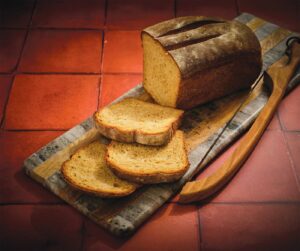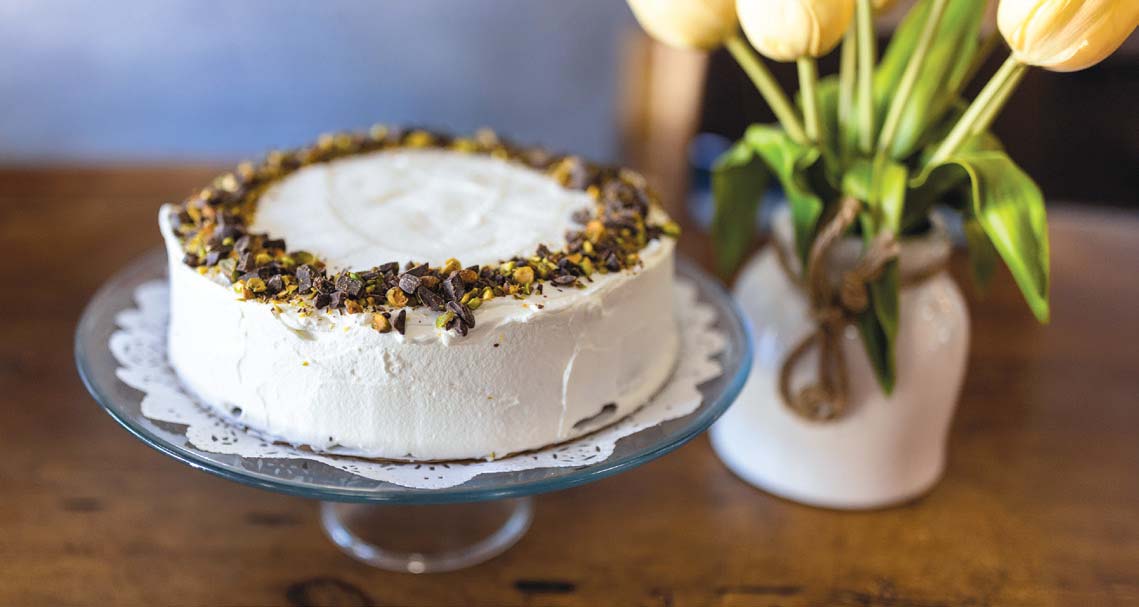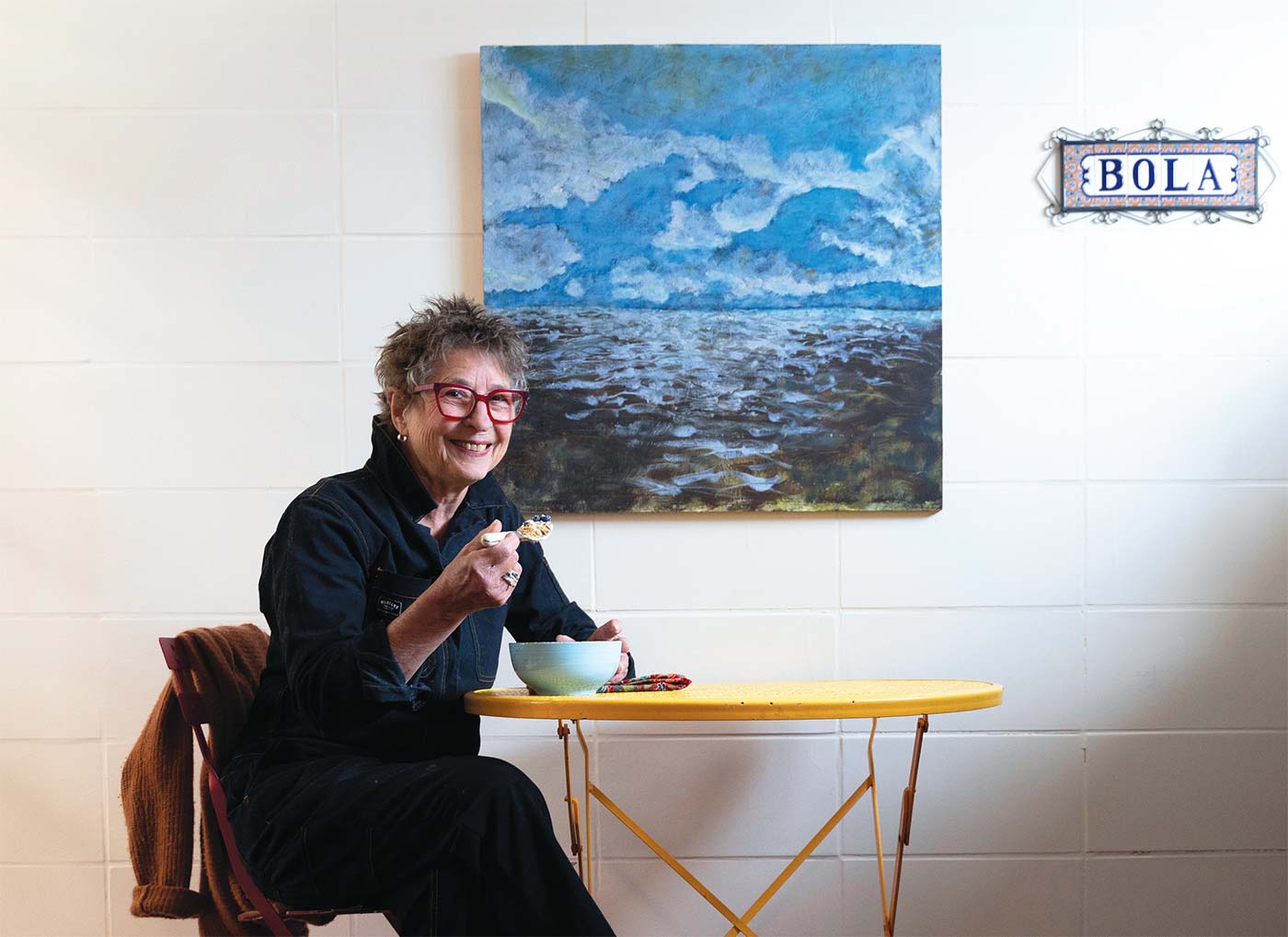
True to Its Values While Expanding Its Reach
BY DONNA FENN | PHOTOGRAPHS BY CHRISTINA RAHR LANE
At BOLA granola, May 10, 2017, is known as the day of the “terrifying tsunami.” It’s when Bon Appétit published celebrity chef Ina Garten’s grocery list along with a short narrative by Garten on her favorite foods. And there it was: BOLA granola. “I buy granola because unless you can make something that’s better than what you’d buy, there’s no point in spending the time!” said the Barefoot Contessa, who later also mentioned BOLA in a cookbook. Thus anointed, BOLA’s popularity surged, triggering delight and a bit of dread at the tiny Great Barrington–based production facility.
“At the time, we were really small,” recalls BOLA founder Michelle Miller. Garten’s enthusiastic endorsement generated a staggering number of online granola orders in one day. “We roll with the punches,” says Miller. “So, we just did it. It was great, and we developed a lot of new friends from there.”
That said, Miller is discerning about expanding her friend/customer circle. While other entrepreneurs may dream of an Ina Garten–like endorsement that catapults sales, Miller is far more comfortable taking a slow and steady approach. It’s taken her 16 years to become an overnight success, and that suits her just fine.
‘I was more of a croissant person’
Miller grew up in Lenox with a Parisian mother who cared deeply about food, but she never really imagined herself in the food industry. She liked to bake but studied art history, photography, and painting in college. While working in Boston in the ’70s, she came home to the Berkshires for a family visit and stopped at Alice’s Restaurant, then just a roadside shack in Glendale, for dinner.
“I was eating the food and I thought, ‘I could cook like this,’” recalls Miller. “But the cake was terrible.” The next day, she called Brock and landed a job as dishwasher, but she eventually got what she really wanted: to bake for Alice.
“I had this idea I would have my own bakery,” Miller says, “but I really didn’t know what I was doing.” Nonetheless, in 1975 she opened a bakery with a friend. Suchele Bakers, in Lenox, made waves with its artisanal breads, European pastries, and pies. But on her maiden bread-making voyage, the 26-year-old Miller pulled a tray out of the oven and realized that she had forgotten to buy cooling racks. “It went on like that for years,” she says. “I had no training, just a palate. We just kept going until I was exhausted.” In 1981, she sold the bakery to Amy Loveless, of past and current Dreamaway Lodge fame, whom she had hired when Loveless was just 17. “And then I went home and read The Rise and Fall of the Third Reich, and I grew a huge garden,” Miller recalls.
The exhaustion abated and Miller was drawn back into the world of food. When her friends Brad Wagstaff and Leslie Miller bought an inn in New Marlborough, Miller suggested they add prix-fixe dining. Old Inn on the Green was born, and Miller became its first cook. A few years later, in 1987, she launched The Boiler Room Café, a local favorite that lasted for an impressive 20 years.
Along the way, Miller and her husband, local furniture maker Peter Murkett, welcomed a son, Riley. He slept on sacks of flour at The Boiler Room, watched cartoons on a little TV set up in a coat closet, and frequently called down to the kitchen to request his favorite dinner: lamb chops topped with julienned fried leeks. “I was lucky to be exposed to a lot of very good, interesting foods,” says Riley Murkett, now 36. “The care and passion for food is something that I’ve inherited and that has shaped my entire life.” Indeed, Murkett is now an integral part of BOLA granola. “He’s my son and one of my best friends,” says Miller.
After spending a few years as a private chef and working for the private aviation firm Bombardier, where she cooked and managed a galley at 30,000 feet, Miller grew weary of being away from home and quit in 2003. She happily devoted herself to painting for a few years, “and then 2008 happened,” she says, referring to the Great Recession, “and I really had to bite the bullet and do something. And my husband said, ‘Why don’t you do granola?’” She had been making granola for the family for years, but “I was more of a croissant person,” Miller says. Nonetheless, she thought she’d give it a go. Knowing that she could vastly improve upon the dry, flavorless, and too sweet granola then on supermarket shelves, she started BOLA in 2008.
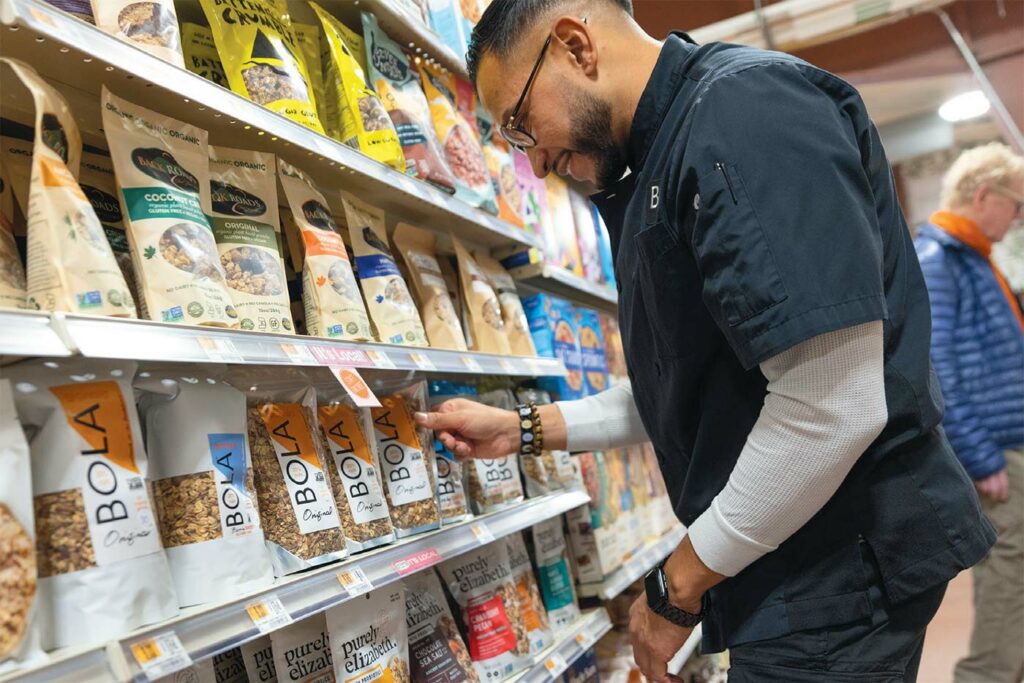
KEEPING IT SIMPLE
Murkett, who joined the company full time in 2016, after working in hospitality management for 15 years, notes that the market for granola has changed dramatically since Miller started the company. “Now, you can’t go anywhere in the U.S. without seeing granola on a menu,” he says. And granola now typically has its own section on supermarket shelves, rather than being tucked in with cereal. While competing brands follow the conventional wisdom of having many varieties, BOLA sticks to just three: Original; Barely Sweet; and Organic Gluten-Free. “We are just so proud of how simple and straightforward it is,” says Miller.
Miller’s recipe for BOLA is the same as it was in 2008: oats, almonds (both whole and ground), pumpkin seeds, and “absolutely top-notch vanilla” remain the key ingredients to BOLA’s distinctive flavor and crunch. It’s all made in a shockingly small facility in Great Barrington, where approximately 12 employees mix, bake, and package approximately 11,000 pounds of granola every week. “That we sit on the shelves next to a bag of granola that’s made by 500 employees—that’s amazing to me,” says Murkett.
Except for her growing relationship with Whole Foods on the East Coast, Wegmans in Massachusetts, and Big Y, Miller eschews big grocery store chains in favor of smaller independent stores, mail order, and private label manufacturing for juice bars and hotels. Physical expansion to other regions is not high on her list of growth strategies. Managing more accounts, including checking the product to make sure it’s not sitting on shelves too long, would demand resources that she’d rather allocate elsewhere.
“That phrase ‘small is beautiful’—that’s my core thing,” says Miller. “Peter and Riley have heard me say so many times: ‘Let’s sell more granola to the people we already sell granola to.’ I don’t need to be worldwide.”
TENDING THE GARDEN
Before Riley Murkett came back to the Berkshires to work at BOLA full time in 2016, he lived in Florida, where he spearheaded BOLA’s Whole Foods relationship in the state. He also started beefing up the company’s social media presence. “Marketing was entering a new era for brands like us, especially, and we needed to be more active,” he says. “And then I started playing with analytics and realized that we needed to upgrade our website.” The Ina Garten–driven tsunami and the expansion with Whole Foods meant that the business needed more back-end support and someone to manage the digital side. Murkett stepped up and moved back home.
But he did not come into the company as the privileged son of the owner. Murkett did every job, including making and packing granola and even “lawn mowing and window washing,” says Miller. He became certified as a food safety compliance manager, learned about best manufacturing processes, and made production more efficient. Also on his plate: recruiting and HR, insurance, and all things digital. Miller, who still manages the company’s finances, concedes, “It’s also been a learning curve for me to be open to doing things in a more modern way.”
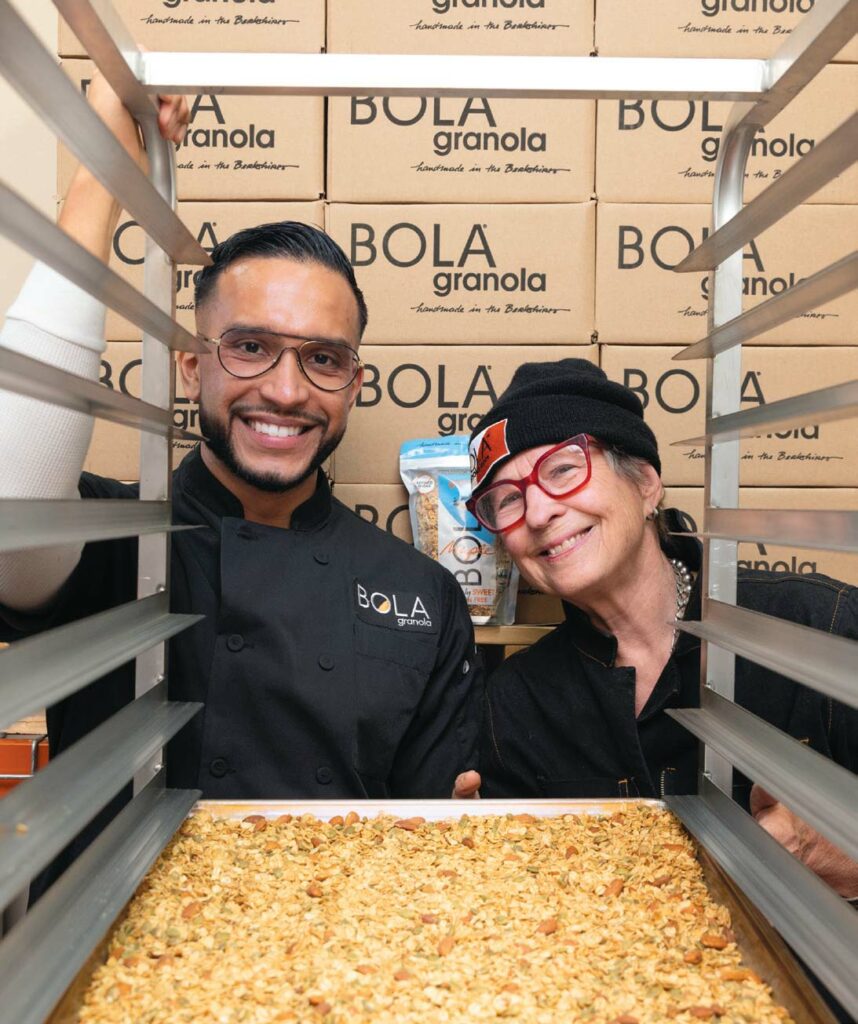
Both Miller and Murkett see the direct-to-consumer side of the business as the most promising path to future growth. COVID accelerated that. When brick and mortar stores were suffering, online orders for BOLA spiked and that has continued. Just last June, the company increased production by 40% to accommodate demand. “E-commerce has grown so much over the last eight years,” says Murkett. “It’s grown our customer segment to a different level. We now have VIP subscribers who get auto shipments bi-weekly.” Those online orders give BOLA broader consumer reach, while allowing the company to control the level of product freshness in a way that would not be possible at brick and mortar stores in other regions. “Mail order makes us local for everyone,” says Miller.
Miller describes BOLA’s current strategy as “tending the garden”— working to make the business more efficient, expanding locally where possible, deepening relationships with existing customers, and striving to make granola a staple in the diet of, well, everyone. “If everyone’s not eating BOLA granola, that’s on me,” she says. And what about the competition? Because there’s certainly plenty of it now. “I don’t think anybody else is doing what we’re doing with maintaining quality,” she says. And Murkett’s view is “the more the merrier”—more granola companies mean more awareness of the category. Miller remembers the early days, when the Bare Naked brand was the standard and everyone else was a “flanker”—a brand riding the coattails of a market leader. What about now? Is she still a flanker? “No,” says Miller decisively. “Now people are flanking me.”
